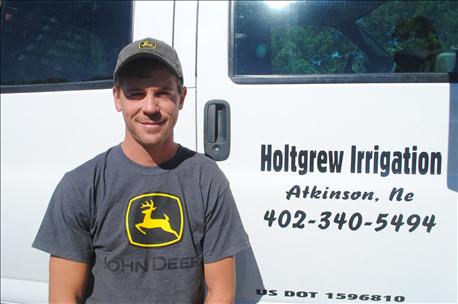
Part Two – On Friday, I wrote about a few things I thought were important when rural graduates are looking at places to live and raise their families after college. It might be coming back to their old hometown and working on the family farm or ranch. Or, it might be working in agribusiness or some other job that allows them to live in their hometown and raise their families with some of the same rural values and cultural advantages they grew up to appreciate.

Last week, I suggested that coming home to work for summers while in college helped establish a stronger connection with rural hometowns. I also wrote that there have to be jobs for the graduates and their spouses available within driving distance. At least, there needs to be technology available in the area so the young families can work remotely for larger companies from their homes. Finally, I talked about the importance of good or expanding infrastructure - roads, parks, streets, water and sewer, curb and gutter, you get the idea – basic things that will attract young families back home.
Here are a few more ideas that I think help young graduates consider their rural hometowns as a permanent place to live.
It’s all about education. When young families are looking for a place to settle down, they will look at schools first. If they had a positive experience in their school system growing up, they are much more likely to look at the schools in a positive way for their own children. Schools, both public and parochial, are a key element to any rural community. Nebraska is blessed with extremely good rural schools under both of those systems. That is a huge drawing card that should be played and promoted by rural communities. Investments in schools and technology in education will pay big dividends for the next generation hoping to move back home.
Don’t underestimate the value of recreation. Think about parks, youth recreation leagues, athletics through school and community programs. Are there opportunities for hunting and fishing, hiking and boating around your community? Do you have festivals, rodeos. museums and fairs that are fun and entertaining? Recreation is a big part of our lives today, even for farm and ranch families, so having those opportunities and building on recreational resources will bring graduates back home.
Have faith. Churches don’t usually make the economic development list, but there is no doubt that farm and ranch families find faith communities essential to their lives. Successful small towns often have vibrant, active faith congregations. Let’s face it. Farmers need faith to do what they do every day. No matter the national trends, in rural America, churches are alive and well and play a crucial role in the decision making when young families are looking for a place to live and work.
Where will I live? Is there adequate housing in your community? Are there opportunities on the farm for housing for a son or daughter moving back home, or are there other existing options close by? If we want our young families to return, we need a place for them to live. It doesn’t have to be fancy. When I moved back, I lived in what we affectionately called “the little house by the creek,” and it worked out just fine. Communities should ask themselves if there is affordable housing available, or if there are starter homes or apartments available to rent.
RELATED: Graduates: Hope for Rural America - Rita Brhel, Yankton Daily Press and Dakotan
It’s not rocket science when young rural families are looking to return home. They want what everyone else wants for their families. It’s that simple. Farmers and ranchers can make it easier, not harder, for these young folks to return not only to the operation, but also to their communities. That doesn’t mean that everything should be free, without some investment of sweat equity by the young family, but some of these factors can at least be considered and placed into a strategic plan to bring another family into the operation. For communities, planning is necessary as well. But if we plan for young folks to return, then we are improving the quality of life for everyone around the community. If we want to roll out the welcome mat, we just need to think about the basic things young folks will need to raise their families, make a good living and take advantage of all the great things our rural communities have to offer. I've heard it said many times that Nebraska's small towns are the state's best kept secret. Well, let's not keep it a secret anymore when we are talking with our graduates about moving back home.
What do you think? What factors did I leave out? I'd like to hear your observations and thoughts in the Comments section below.
Get the latest local farm news at Nebraska Farmer online. Be sure to follow me on Twitter @HuskerHomePlace, and Editor, Tyler Harris @tyharris08. Check out #NebFarmNow and #HHD15.
BONUS: What brings rural graduates back home? - Part One - Husker Home Place
About the Author(s)
You May Also Like






